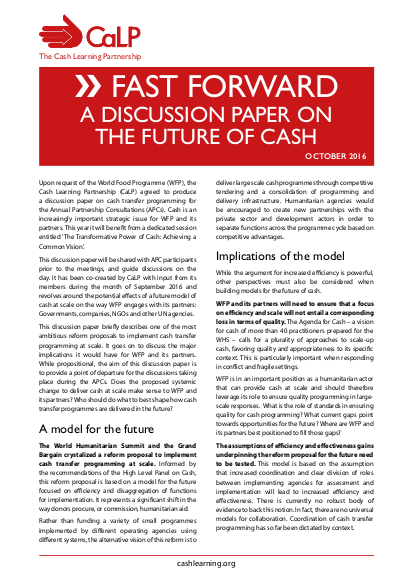
This paper explores the implications for cash stakeholders of the ambitious reform proposals to come out of the World Humanitarian Summit / Grand Bargain process to implement cash transfer programming at scale.
Key highlights include:
- Going forward, cash stakeholders will need to ensure that a focus on efficiency and scale will not entail a corresponding loss in terms of quality
- The assumptions of efficiency and effectiveness gains underpinning the reform proposal for the future need to be tested.
- The proposed model for cash scale up is based on competition and creates important incentives for corporate growth and increased capacity for implementing agencies.
- The proposed model presents a different way of doing business for INGOs and other UN Agencies which will be shaped by decisions taken regarding the allocation and prioritisation of resources by donors.
- Cash stakeholders should agree clear guiding principles for the division of labor based on a shared commitment to impact.
- When appropriate, agencies should move away from contractual relationships to partnering with the private sector to innovate together.
- A model for the future of cash at scale based on a consolidation of actors could entail potential tradeoffs for diversity and inclusiveness of local actors.
- Host Governments have a central role to play in the scale up of cash transfer programming, including coordination.
- There is a need to build strong local NGO leadership and true local and operational fiduciary capacity with the ultimate aim of reducing UN and INGO footprints.